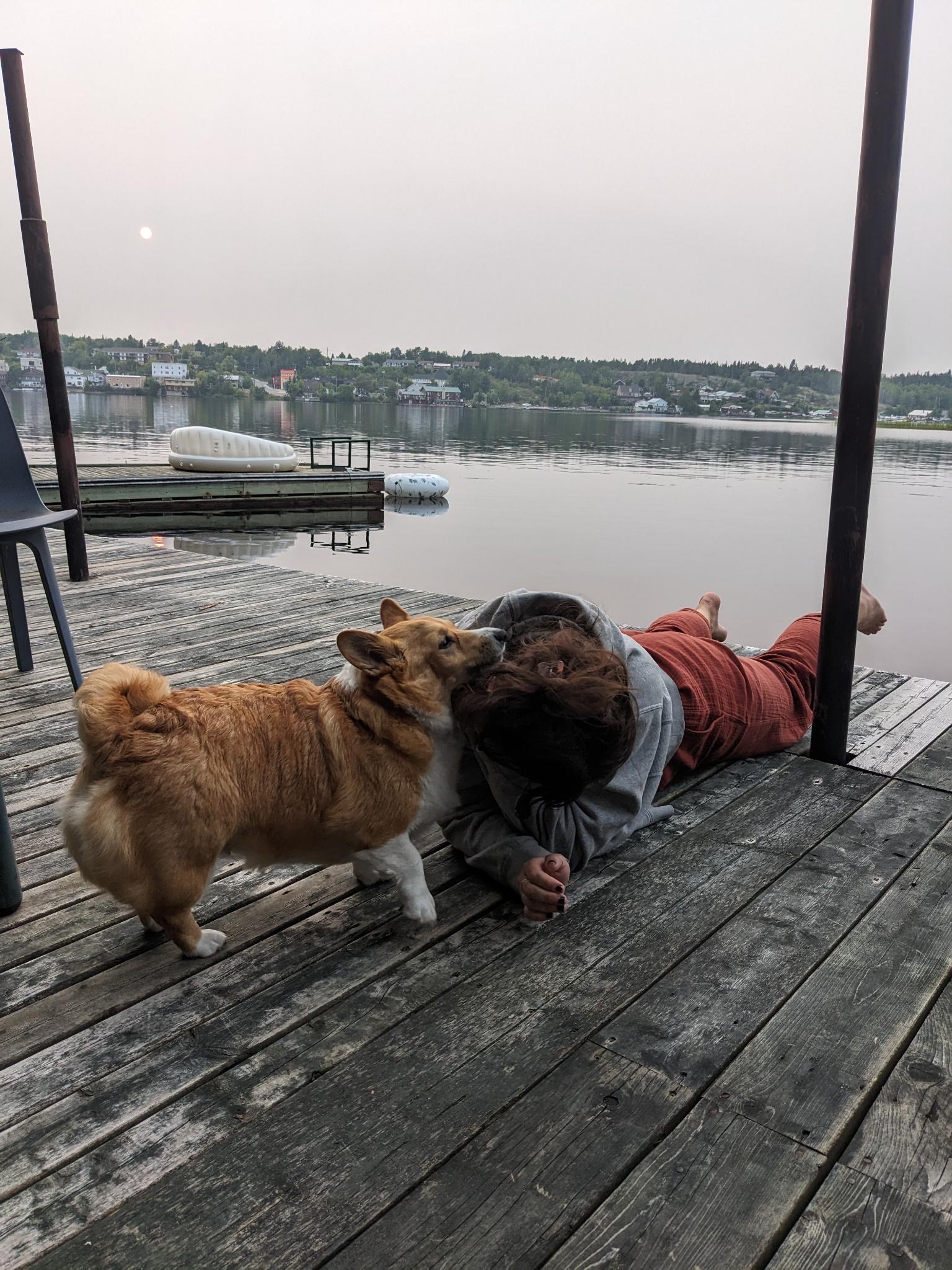
I’m someone who has always loved the idea of romance.
I don’t mean candles lighting the way to a dinner on the beach, although that can be nice sometimes.
I’m more interested in hot dogs in the Costco parking lot after wandering through the aisles with someone and considering whether we need a four-person kayak. Road trips spent making up bad lyrics to already bad songs. Dancing in the kitchen instead of doing the dishes. Low-key romance. Every-day-ordinary-life-is-stupid-and-beautiful kind of stuff.
I can’t help but love the obviously beautiful things, like the mountains I can see from my dining room window, but I’ve always been a big proponent of looking for beauty in unexpected places. I stopped taking photos when I moved to Vancouver Island because everything was so in-your-face pretty that it seemed pointless. There was nothing to unearth or illuminate. Look out your window, and there it is: the most gorgeous place you’ve ever seen and nothing to figure out.
When I explained this to a photographer that I met in a Berlin kink club, the two of us deep in conversation about product photography while people around us whipped each other, he told me that when you’re in a place that’s aesthetically perfect, it becomes your job to find the imperfections. Photograph that ugly stuff in a pretty place. At the time it felt like a revelation, but in practice, I simply can’t do it. My habit of looking for beauty is too far gone now, and I’m not sure I can change now.
In the same way, I am constantly trying to romanticize my existence. That phrase has become popular now, this idea of seeing your life in a light that makes things feel relevant, and exciting, and, yes, beautiful. For some people, it means fresh flowers in a vase or reading on the beach or walking down a new street and into a coffee shop you’ve only ever walked past.
I asked my friend what he thought romance was while we waited for a ferry to take us from Salt Spring back to Victoria. We had come over on a Wednesday night and gotten fish and chips from a truck by the road, and while we waited for our food, we could hear the echoes of a band that was playing across the water from us. I asked him because I couldn’t imagine anything more romantic, platonic as our relationship is, than sitting in the ferry line-up at Salt Spring on a Wednesday night, watching the sky turn dusky.
We talked about a few different things that could contribute to romance, the nerds that we are. He mentioned a shared sense of passion in something. I wondered about intention—does romance mean we tried to make something romantic? We both agreed that romance isn’t always, or even mostly, for people in love. It’s also something that happens between friends and strangers. It’s something we can cultivate alone, eating canned peaches out of the fridge in our underwear. So how do define romance, and recognize it when it’s right in front of us?
Here’s my theory. Romance is the realization that the moment we are in—who we are, who we’re with, where we are and how it feels—will never return to us again. This realization can strike at any time. It’s right there on the surface when you’re watching the sun dip behind the mountains or getting ready for a wedding or a graduation. It feels almost overwhelming when you’re on vacation in a new city or at the cabin with a group of people you love. There’s some imposing sentimentality (if you’re me, anyway) that you will never quite be there again, quite feel that way again, and the moment suddenly becomes something sweeter and more urgent.
Look at this! Yes, right here! Every detail! Look at your friend’s bangs blowing in the wind while they laugh. Breathe in that smell of boat exhaust and firewood. Stare a second longer at the neon lights in languages you don’t understand. This right here, this isn’t forever. That’s what makes it so unmissable. Being human and knowing this will all end one day—it’s the most romantic thing there is.
As I write this, I am sitting on the couch of one of my closest friends in her house, a wood cabin on the lake’s shore in a small Ontario mining town. Outside, I can hear the rain beginning and—what I’ve been dreaming about for months—the sound of thunder rolling in the distance. Scout the corgi is napping in her bed beside me. On the road, an older neighbour calls out to a boy on a scooter: “Get home before the rain comes in!” The sky is dark with clouds and smoke and tonight there will be a full Sturgeon moon.
We are drinking coffee in separate rooms of the house and working, but my friend is right there, and I haven’t seen her in person in almost a year. Some small part of me, a part that doesn’t need to make a big deal of itself, is whispering that this is a moment I will remember for many years to come. I’ll think about it when we’ve aged another 10, 20, 40 years. About how so many things overlapped at this point—our lives as well as the life of the house, and the town, and how they are all here together in this exact configuration.
It’s sweet because it’s ephemeral; so much less solid than it appears to be. It’s these moments that feel like romance to me, or maybe something even bigger.
I can still remember being 12 and sitting in the backseat of my parents’ car as they drove me home from a sleepover. I sat crammed full of happy memories with my friends, so many funny, stupid things that had happened, and I was determined to hold onto all of it as if I could clutch water in my hands and stop it from leaking out. I can’t remember any of the things we did now, but I remember the feeling, because I can still feel it now:
Please let me keep this. Let me find a way to hold it for as long as I can.
This is what all artists are trying to do. We’re in love with life, and we can’t resist the urge to capture it in a jar like a firefly.
But I’ve got it now: romanticizing your life is about knowing that it’s only yours for a bit. Make it count.
~
Please consider Boosting our authors’ articles in their first week to help them win Elephant’s Ecosystem so they can get paid and write more.


 Share on bsky
Share on bsky




Read 6 comments and reply